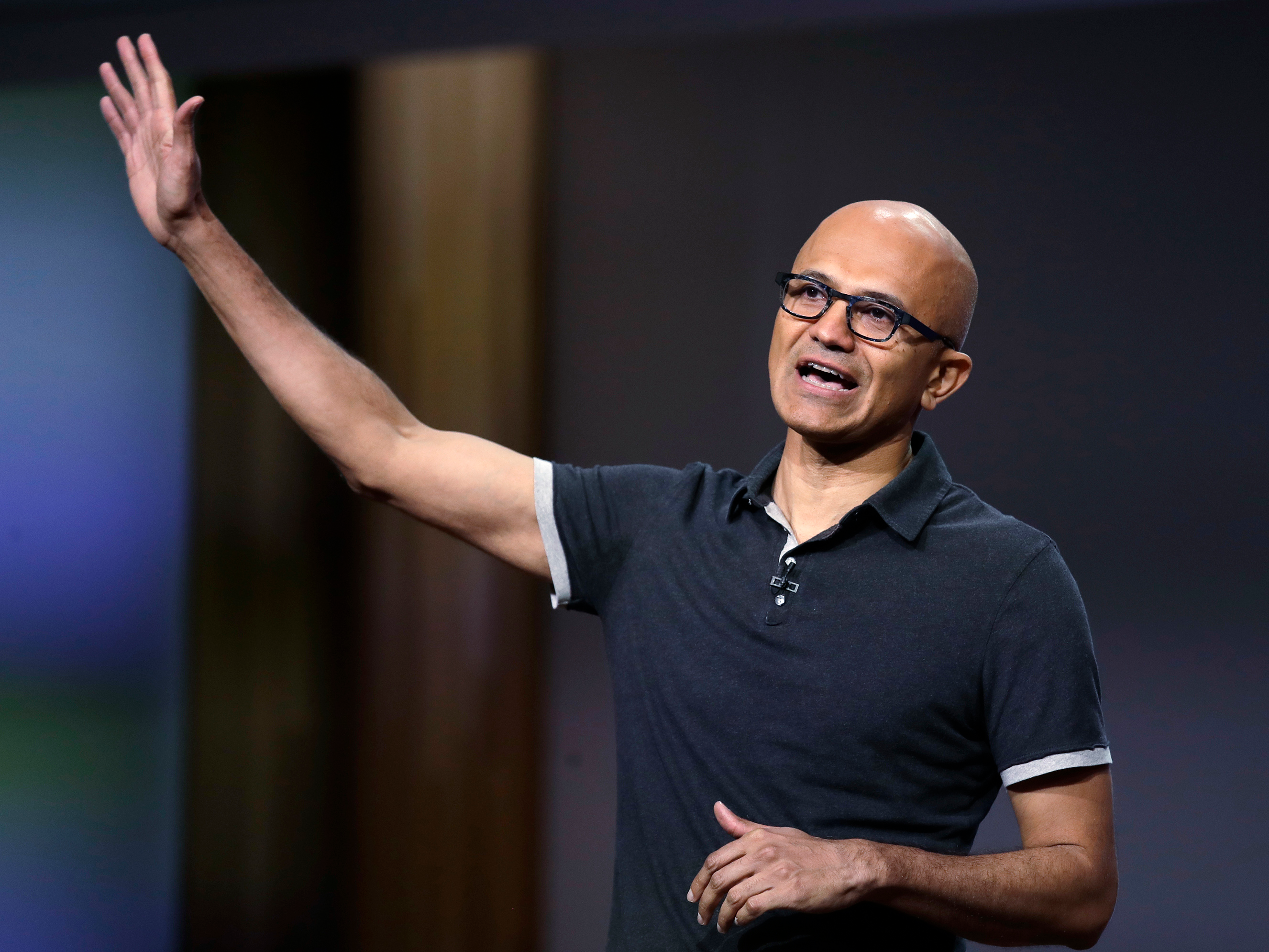- On Friday, Microsoft won the $10 billion Joint Enterprise Defense Infrastructure (JEDI) contract – clinching it over Amazon, which was thought to be the frontrunner.
- Microsoft and Amazon had been competing for this key Pentagon contract for over a year.
- Even President Donald Trump got involved: He demanded more information on the deal after Republican lawmakers raised concerns. Ultimately, the deal award was delayed for further review – which the Washington Post reported was at the direction of the White House, for fears that Amazon would win.
- Trump has been critical of Amazon and CEO Jeff Bezos, especially since Bezos owns the Washington Post newspaper. Experts surmised that this could work against AWS in the JEDI fight.
- IBM and Oracle, which were eliminated from the race, had previously filed protests about the JEDI bidding process.
- An Amazon Web Services spokesperson says the company is “surprised about this conclusion.”
- Read more on the Business Insider homepage.
Microsoft was officially awarded a $10 billion cloud contract with the Pentagon on Friday – marking a surprise victory over Amazon Web Services, which was thought to be the frontrunner for the deal.
This deal, called the Joint Enterprise Defense Infrastructure (JEDI) contract, is a 10-year contract to help the Department of Defense move its sensitive data to the cloud. Companies like IBM and Oracle also competed for the contract since the bidding process opened up in July. In April, IBM and Oracle were eliminated from the race, while Google dropped out in late 2018 over concerns that it would be unable to fulfill the terms of the contract.
Previously, President Donald Trump reportedly wanted to “scuttle” the bidding process for JEDI. Experts previously speculated that Trump’s public feud with Amazon CEO Jeff Bezos – who also owns The Washington Post, which has published coverage critical of the president – might have worked against Amazon Web Services in the bidding process.
Trump had demanded more information about JEDI after hearing about complaints on the bidding process, and he promised to look into the deal after receiving letters on the matter from lawmakers, including Sen. Marco Rubio. In August, the deal award was delayed for further review, reportedly because the White House was concerned that Amazon would win.
"The National Defense Strategy dictates that we must improve the speed and effectiveness with which we develop and deploy modernized technical capabilities to our women and men in uniform," DOD Chief Information Officer Dana Deasy said in a statement. "The DOD Digital Modernization Strategy was created to support this imperative. This award is an important step in execution of the Digital Modernization Strategy."
Industry analysts predicted that Amazon Web Services was the frontrunner to win the contract, although others have said that Microsoft Azure has grown quickly as well and invested significant resources in improving its government cloud.
"We're surprised about this conclusion," an AWS spokesperson said. "AWS is the clear leader in cloud computing, and a detailed assessment purely on the comparative offerings clearly lead to a different conclusion. We remain deeply committed to continuing to innovate for the new digital battlefield where security, efficiency, resiliency, and scalability of resources can be the difference between success and failure."
Although analysts saw the bid as a two-horse race, the competition was still fierce, to the point that even an anti-Amazon smear campaign, apparently linked to Oracle, spread around Washington, DC.
Oracle and IBM also filed official protests about the contract. Oracle went so far as to file an ultimately-failed lawsuit saying that Amazon was favored to win JEDI and had conflicts of interest in the process.
The win could have serious ramifications for both cloud providers, analyst Dan Ives of Wedbush said in a note to clients late on Friday. It represents a huge growth opportunity for Microsoft, while also presenting something of a black eye to Amazon Web Services.
"In a nutshell, we believe Microsoft and Nadella are popping the champagne tonight in Redmond while Bezos and Amazon are likely shocked they lost the World Series of cloud deals with JEDI," Ives wrote.
Amazon is "still evaluating options" in the wake of the surprise loss, according to a source close to the situation. Ives said that his firm expects Amazon "and others" to stand up some kind of legal challenge to the decision.
Business Insider has reached out to Microsoft for comment.

